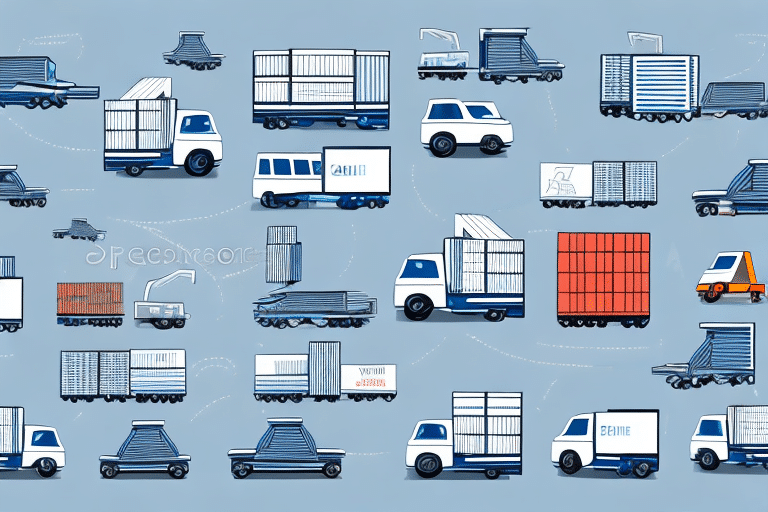5 Reasons Why Logistics Hiring Is On Fire
The logistics industry is experiencing a surge in hiring, driven by a combination of evolving industry trends, technological advancements, and shifting consumer behaviors. This article explores five key reasons behind the current boom in logistics employment and what it means for both job seekers and employers. From the rise of e-commerce and automation to sustainability efforts and skills gaps, discover the factors fueling the robust growth in logistics jobs.
1. Current Industry Trends Driving Logistics Hiring
Soaring Global Demand
The global logistics market is projected to reach $15.5 trillion by 2027, growing at a compound annual growth rate (CAGR) of 7.5% from 2020 to 2027 (Grand View Research). This surge is primarily due to increased international trade, expanding manufacturing sectors, and the need for efficient supply chain solutions.
Rise of E-commerce
The exponential growth of e-commerce has significantly impacted logistics hiring. As online retail continues to dominate the market, logistics companies are expanding to handle higher volumes of orders, requiring more professionals in areas like warehouse management, transportation, and supply chain optimization. According to Statista, global e-commerce sales are expected to surpass $6.5 trillion by 2023.
Focus on Sustainability
With increasing emphasis on environmental responsibility, logistics companies are prioritizing sustainability. This involves optimizing transportation routes to reduce emissions, adopting eco-friendly packaging, and implementing energy-efficient warehouse practices. Companies are seeking professionals who can develop and manage these sustainable initiatives to meet both regulatory standards and consumer expectations.
2. The Impact of E-commerce on Logistics Employment
The transformation driven by e-commerce has reshaped logistics operations, creating a substantial demand for skilled professionals. The shift towards online shopping has necessitated advancements in last-mile delivery, route optimization, and inventory management. Industry experts predict that e-commerce will contribute to the creation of approximately 452,000 new logistics jobs by 2026, with a particular need for data analysts and supply chain management professionals (Forbes).
Transformation of Skill Sets
Traditional logistics roles are evolving to include technological competencies. Warehouse workers, for example, are now expected to operate automated inventory systems and utilize basic computer skills. This shift underscores the importance of continuous learning and adaptation within the industry.
3. How Automation is Changing the Landscape of Logistics Hiring
Automation technologies such as robotics, machine learning, and artificial intelligence are revolutionizing logistics operations. These advancements are streamlining processes, reducing costs, and increasing efficiency, thereby altering the types of roles available within the industry.
Demand for Tech-Savvy Professionals
As automation becomes integral to logistics, there is a growing need for professionals who can manage and maintain these technologies. Roles such as automation technicians, data analysts, and AI specialists are increasingly in demand. According to a report by the McKinsey Global Institute, automation could displace up to 15% of logistics jobs, while simultaneously creating new opportunities for tech-oriented roles.
Creation of New Job Roles
Automation has led to the emergence of new job categories, including maintenance technicians for automated systems and data scientists focused on predictive analytics. These roles require a blend of technical expertise and industry-specific knowledge, emphasizing the need for specialized training programs.
4. The Role of Technology in Recruiting for Logistics Positions
Technology is revolutionizing the recruitment process in the logistics sector, making it more efficient and effective in attracting the right talent.
Digital Recruitment Platforms
Companies are leveraging digital recruitment platforms to streamline job postings, manage applications, and communicate with candidates. Platforms like LinkedIn and Indeed offer advanced filtering options to identify candidates with specific skills and experiences.
Employer Branding and Social Media
Utilizing social media and employer branding strategies allows logistics companies to showcase their unique value propositions, culture, and career opportunities. This approach helps in attracting highly skilled professionals who align with the company's values and goals.
Reducing Bias with Technology
Implementing tools such as online skill assessments and video interviews can minimize unconscious bias in the hiring process. By focusing on candidates' qualifications and competencies, companies can foster a more diverse and inclusive workforce (Harvard Business Review).
5. Addressing the Skills Gap in the Logistics Industry
Despite the surge in hiring, many logistics companies face challenges in finding qualified candidates with the necessary skills and experience. Approximately 75% of logistics and supply chain employers report difficulty in hiring employees with the right skills (Supply Chain Dive).
Investing in Training and Development
To bridge the skills gap, companies are investing in training programs, apprenticeships, and mentorship opportunities. Collaborations with educational institutions and industry associations are also helping to build a pipeline of future talent.
Emphasizing Technological Proficiency
With rapid technological advancements, logistics professionals must possess a strong understanding of automation, AI, and data analytics. Upskilling and reskilling initiatives are essential to ensure employees remain competitive in the evolving job market.
6. Top In-Demand Jobs in Logistics Hiring
The growth in the logistics sector has led to increased demand for various roles. Some of the top in-demand jobs include:
- Data Analysts: Experts who analyze logistics data to optimize supply chain operations.
- Supply Chain Managers: Professionals responsible for overseeing and improving supply chain processes.
- Transportation Managers: Individuals who manage the transportation of goods, ensuring efficiency and compliance.
- Logistics Coordinators: Coordinators who manage the movement of goods and materials across the supply chain.
- Warehouse Supervisors: Supervisors who oversee warehouse operations and manage staff.
- IT and Engineering Roles: Positions focused on integrating automation and digital technologies into logistics operations.
The demand for these roles is fueled by the need to enhance efficiency, manage increasing order volumes, and integrate advanced technologies into logistics processes.
7. Salary and Benefits in Logistics Employment
Logistics careers offer competitive salaries and comprehensive benefits packages. According to the Bureau of Labor Statistics, the median annual wage for logisticians was $76,270 in May 2021, with transportation managers earning a median wage of $96,390.
- Competitive Salaries: Salaries vary based on role, experience, and location, with opportunities for growth as professionals advance in their careers.
- Comprehensive Benefits: Benefits typically include health, dental, and vision insurance, retirement plans, paid time off, and opportunities for professional development.
- Additional Perks: Many companies offer bonuses, flexible work arrangements, and tuition reimbursement for continuing education, enhancing the overall compensation package.
8. Tips for Job Seekers Looking to Break into the Logistics Industry
- Gain Relevant Experience: Pursue internships, volunteer opportunities, or entry-level roles to build practical experience in logistics.
- Invest in Education and Training: Consider obtaining certifications or degrees related to logistics, supply chain management, or business operations.
- Develop Technological Skills: Proficiency in logistics software, data analytics, and automated systems can set candidates apart.
- Network with Industry Professionals: Join online communities, attend job fairs, and participate in trade associations to connect with potential employers.
- Demonstrate Strong Work Ethic: Logistics roles require reliability, attention to detail, and the ability to work under pressure.
- Enhance Communication and Problem-Solving Skills: Effective communication and the ability to resolve issues promptly are highly valued in logistics roles.
9. How Companies Can Attract and Retain Top Talent in Logistics Hiring
Offering Competitive Compensation
Providing attractive salaries and comprehensive benefits packages is crucial for attracting top talent. Companies should regularly benchmark their compensation against industry standards to remain competitive.
Investing in Professional Development
Offering training and development programs, as well as clear career advancement paths, helps retain employees by fostering growth and job satisfaction.
Implementing Flexible Work Arrangements
Flexible working hours and remote work options can enhance employee satisfaction and retention, particularly for roles that support such arrangements.
Promoting a Strong Company Culture
A positive and inclusive company culture that emphasizes teamwork, collaboration, and employee engagement can significantly improve retention rates. Prioritizing diversity and inclusion initiatives further broadens the appeal to a diverse talent pool.
Leveraging Technology for Recruitment
Utilizing advanced recruitment technologies can streamline the hiring process, reduce bias, and ensure that companies attract candidates with the right skill sets. This includes the use of applicant tracking systems, AI-powered screening tools, and virtual interview platforms.
Staying Current with Industry Trends
Companies that invest in the latest logistics technologies and stay abreast of industry advancements demonstrate a commitment to innovation. This not only attracts talent interested in working with cutting-edge tools but also ensures that employees have the resources needed to excel in their roles.
By implementing these strategies, logistics companies can effectively attract and retain top talent, ensuring sustained growth and competitiveness in a rapidly evolving industry.






















